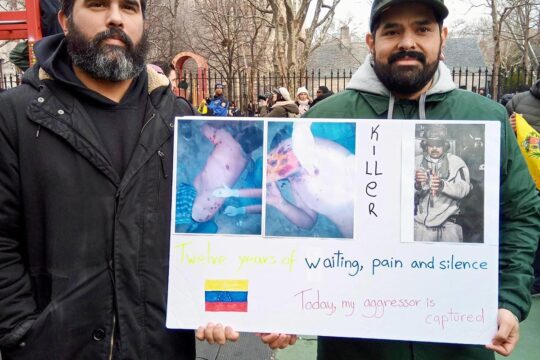Amnesty International said Monday that it would keep up investigations on Russia despite Moscow declaring the rights group an "undesirable organisation", effectively banning its operations and exposing supporters to prosecution.
"This decision is part of the Russian government's broader effort to silence dissent and isolate civil society," Amnesty secretary general Agnes Callamard said in a statement.
Amnesty said the move would not deter its efforts to document rights abuses, including alleged war crimes by Russian forces in Ukraine.
Russia's prosecutor general accused the London-headquartered body of being a "centre for the preparation of global Russophobic projects, paid for by accomplices of the Kyiv regime."
Moscow has outlawed dozens of international civil society groups amid a years-long crackdown on dissent and criticism that has escalated since it launched its invasion of Ukraine in February 2022.
It said the group had "been doing everything possible to intensify the military confrontation in the region, justifying the crimes of the Ukrainian neo-Nazis, calling for increased funding for them and supporting the political and economic isolation of our country."
Kyiv, the West and independent experts have repeatedly rejected Moscow's claims that it is fighting to "de-Nazify" Ukraine as baseless Kremlin propaganda.
On its website, Amnesty calls Russia's military offensive on Ukraine a "war of aggression".
"The rights to freedom of expression, peaceful assembly and association remained severely restricted," it adds, detailing "arbitrary persecution" of religious groups, children and LGBTQ groups, among others.
"Dissenters faced arbitrary prosecutions, unfair trials, heavy fines and lengthy prison terms under a plethora of laws that failed to meet international human rights standards," Amnesty stated.
Groups labelled "undesirable" are banned from operating in Russia.
Anybody accused of "cooperating" with them can face fines or a lengthy jail sentence.
Groups designated "undesirable" are banned from operating in Russia and individuals who cooperate with them risk administrative fines or criminal prosecution --including prison terms of up to six years for repeat offences.
Amnesty has warned that the Moscow decision puts Russian partners, journalists and others perceived to support the organisation at risk.
The designation comes three years after Russian authorities blocked access to Amnesty's website and shut down its Moscow office.


